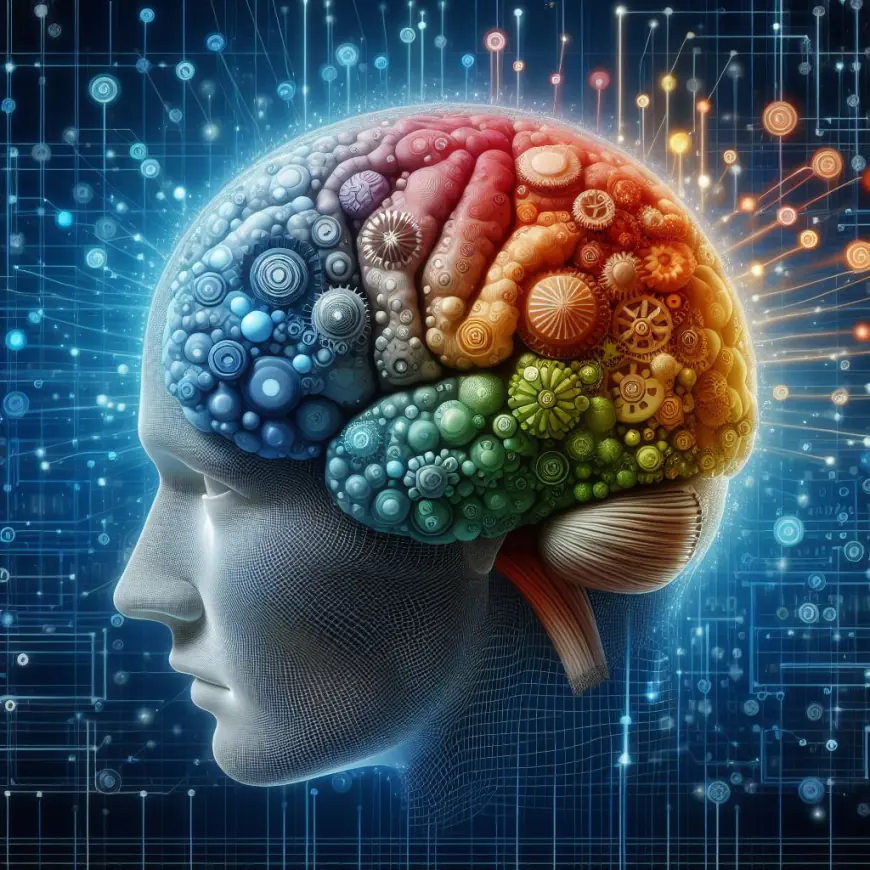Why Are Some People Smart And Others Not?
“Why Are There Smart People And Stupid People Even Though We All Have The Same Brain?”

Understanding Human Intelligence: The Spectrum from Smart to Stupid
Introduction
Human intelligence is a fascinating and complex subject. Despite all humans having structurally similar brains, there is a wide range of intellectual capabilities among individuals. This article delves into the reasons behind this diversity, exploring genetic, environmental, and social factors that contribute to the spectrum of intelligence.
The Biological Basis of Intelligence
Genetics and Intelligence The quest to understand why people differ in intelligence often begins at the genetic level. While all humans share a common brain structure, slight variations in genetic makeup can significantly influence cognitive abilities.
Brain Structure and Function The brain’s structure, such as the size and connectivity of the neocortex, plays a crucial role in determining one’s intellectual capacity. However, it’s not just about size; the efficiency of neural pathways and the speed of neurotransmitter release also matter.
Environmental Influences
Early Childhood Development The environment in which a child grows up can have a profound impact on their intellectual development. Factors such as nutrition, parental involvement, and educational opportunities can either foster or hinder cognitive growth.
The Role of Education Education is a critical component in developing intelligence. Access to quality education and the encouragement of critical thinking skills can greatly enhance a person’s intellectual abilities.
Social and Cultural Factors
Cultural Definitions of Intelligence Different cultures value different types of intelligence, which can influence how ‘smart’ or ‘stupid’ individuals are perceived. In some societies, academic achievement is the gold standard, while in others, practical problem-solving or social skills may be more highly valued.
The Impact of Socioeconomic Status Socioeconomic status often dictates the resources available to an individual, which can affect their intellectual development. Those with greater access to resources typically have better educational and cognitive development opportunities.
The Psychology of Intelligence
Fixed vs. Growth Mindset The belief in one’s ability to grow intellectually (growth mindset) versus believing that intelligence is a fixed trait (fixed mindset) can significantly influence how people approach learning and intellectual challenges.
Cognitive Biases and Decision Making Cognitive biases can lead to poor decision-making, which may be perceived as ‘stupidity.’ Understanding these biases is key to fostering better judgment and smarter choices.
The Role of Neuroplasticity
Adaptability of the Brain Neuroplasticity refers to the brain’s ability to reorganize itself by forming new neural connections throughout life. This adaptability plays a significant role in the development of intelligence, as it allows the brain to compensate for injury, disease, and adjust to new learning experiences.
Intelligence Quotient (IQ) and Beyond
IQ Tests and Their Limitations While IQ tests are commonly used to measure intelligence, they have their limitations. They often fail to capture the full spectrum of human intelligence, such as emotional intelligence, creativity, and practical problem-solving.
Multiple Intelligences The theory of multiple intelligences, proposed by Howard Gardner, suggests that intelligence is not a single general ability but a combination of various distinct types of intelligence, including linguistic, logical-mathematical, spatial, bodily-kinesthetic, musical, interpersonal, intrapersonal, and naturalistic.
Technological Impact on Intelligence
The Digital Age and Cognitive Skills The rise of technology has changed the way we think and process information. Some argue that the constant access to information has reduced our memory retention and attention spans, while others believe it has made us more efficient at finding information and multitasking.
Artificial Intelligence and Human Cognition As artificial intelligence (AI) continues to advance, it raises questions about the nature of human intelligence. AI can perform tasks that require high levels of cognitive function, challenging our understanding of what it means to be ‘smart.’
Future Directions
Genetic Engineering and Intelligence Advancements in genetic engineering may one day allow us to enhance human intelligence. Ethical considerations aside, this could lead to a future where the intellectual disparities among individuals are even more pronounced.
The Pursuit of Collective Intelligence The concept of collective intelligence suggests that groups of individuals can work together to achieve a higher level of intellect than any one person alone. Harnessing this collective power could be key to solving some of the world’s most complex problems.
Conclusion
The variance in human intelligence is a result of a complex interplay between genetics, environment, and social factors. Recognizing the multifaceted nature of intelligence is essential in appreciating the diversity of human cognitive abilities. By nurturing positive environmental and social conditions, we can help unlock the intellectual potential inherent in every brain.
What's Your Reaction?








































